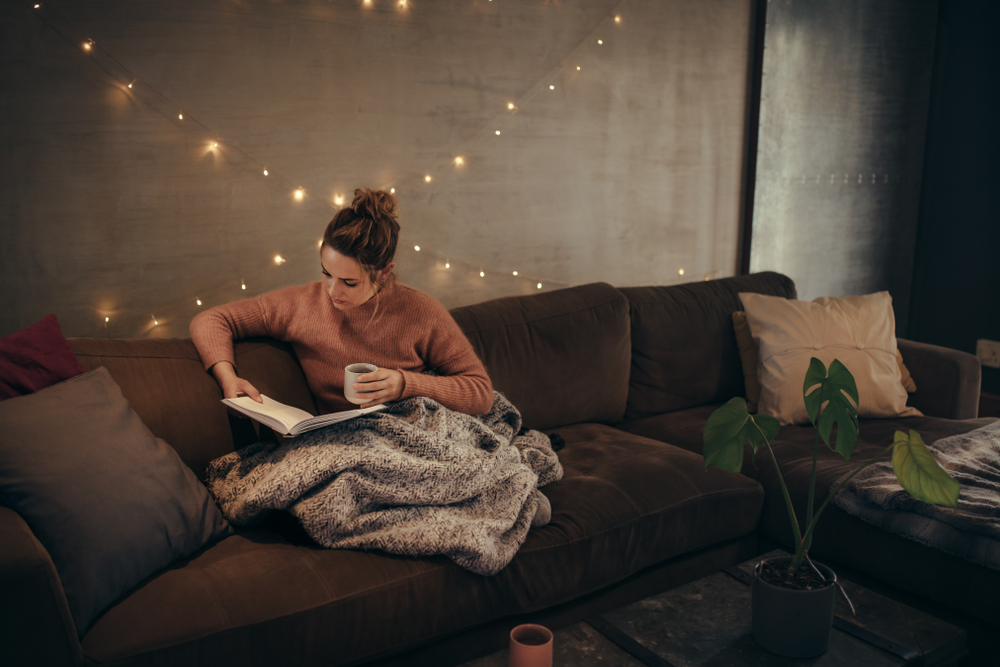Lately, as I sit down to enjoy a meal, I’ve noticed that my jaw feels tight to the point that it hurts to chew. Then I notice that my neck and shoulders feel a bit stiff too. Other times, I would just ignore these unpleasant aches, thinking I must have slept funny or been sitting at my desk too long. Avoidance is a useful strategy in the short-term. It provides temporary relief. But, as we see from living with the threat of a global pandemic, our go-to coping strategies may not serve us well in the long run.
When stress is at an all-time high, we don’t always notice ourselves clenching our jaw or slouching or straining to look at our phones and tablets. For me, these aches and pains are an important signal about the kind of tension I’ve been carrying in my body, and where I’m feeling it most. As someone who struggles with anxiety and has counselled clients with similar challenges, being urged to pause and reflect can have the opposite effect.
During undergrad, when my mom would tell me to take a break from studying, I would imagine myself slacking off and never regaining the momentum to be productive again. Of course, I did need to take breaks, and they were important for my well-being, but this kind of all-or-none thinking is common with anxiety. Now, with coronavirus putting a halt to our everyday routines, we don’t have a choice in the matter.
What’s helping me stay positive and productive is making joy a priority. Here are some small habits that I’ve found useful:
Learning something new
Apart from social distancing, proper handwashing is sage advice for combatting the spread of coronavirus. Is singing “Happy Birthday” to ourselves getting a little old? We can change it up by learning the words to a new song or an old one. I just learned the chorus to Tupac and Biggie’s song “Runnin’” and it helps me fill about 25 seconds.
Starting with a reward
Rewards usually come at the end, right? When I’m working from home, I find that I stay focused longer if I start with something enjoyable. I spend a few minutes reading a story or playing with my dogs or checking out new arrivals at a favorite clothing retailer. Sometimes when we wait for rewards, we end up feeling like what we’re doing is more miserable than it really is.
Welcoming nostalgia
We all have touchstones that remind us of a time when life was simpler. It might be watching a favorite movie or TV show (mine is the Golden Girls), listening to music that reminds us of our first concert, reading books we’ve read hundreds of times, or wearing fun accessories when we’re teleconferencing with colleagues (I myself enjoy a colorful scrunchie reminiscent of the 90s).
Engaging our senses
Aside from peaceful images and soothing sounds, what about our other senses? Remember the stuffed animals we had as children or still do now. Feeling something soft brings us calm, helping to regulate our emotions. Indoors, I enjoy cuddling with my dogs or snuggling with a cozy blanket. When I’m outside, walking on the grass helps me feel grounded and secure. For the sense that’s most closely linked to memory, I turn to essential oils that are safe for us and our furry family members. Cooking hearty meals and enjoying them together (even virtually) helps me engage two senses at once.
Making small decisions count
Like many of us, I have turned to sweatshirts and joggers as my new work attire. I have this cotton shirt that’s still pretty new. There’s one spot where the stitching is raised and feels scratchy. I decided to stop wearing it—a small decision but an empowering one nonetheless. At times like this when so much seems out of our control, it helps to make small decisions count.
Turning to gratitude
Personally, the move to working from home has not been such a colossal shift. It wasn’t too long ago that I was grad student, spending much of my time alone writing a 273-page thesis. For those of us who are going stir crazy, saying aloud what we’re grateful for can help put things in perspective—our job, the health of our family, and the time to reflect (even when it’s hard for us anxious folks).
As I look back on this list, I think about why these small habits are helpful. They’re not avoidance strategies which are passive and serve as a short-term fix. Instead, they are active and intentional. They involve choosing to prioritize joy.
Follow us here and subscribe here for all the latest news on how you can keep Thriving.
Stay up to date or catch-up on all our podcasts with Arianna Huffington here.


